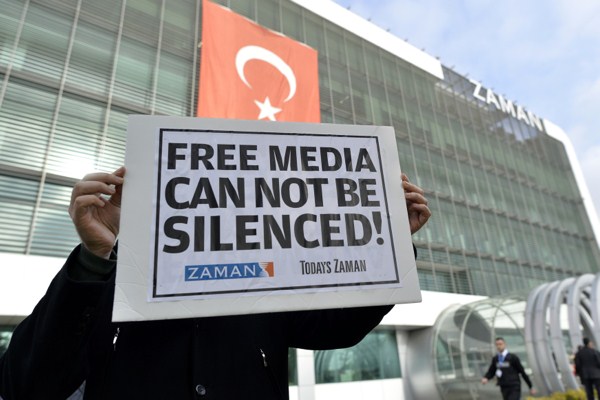Turkish police raided a newspaper and television station with ties to U.S.-based cleric Fethullah Gulen and his Hizmet movement earlier this month, arresting 23 journalists, producers and writers. While freedom of the press has long been a concern in Turkey—which currently ranks 154 out of 180 in the Reporters Without Borders press freedom index—the arrests have more to do with growing tensions between Turkish President Recep Tayyip Erdogan and the exiled Gulen.
Gulen was an ally of Erdogan and his ruling Justice and Development Party (AKP) until a corruption scandal, which Gulen and his followes deny instigating, broke last year. Erdogan then claimed that Gulen and his supporters were attempting to set up a “parallel state” and overthrow the government. Erdogan has also targeted Turkey’s judiciary, which is widely believed to be under Gulen’s influence, trying to reduce its power and generally limiting judicial independence. In fact, four judges involved in investigating the corruption charges against Erdogan last year were dismissed today.
However, it is difficult to understand the complexities and actions of Gulen and his followers. “Since the Gulen movement is not a political party but a very opaque nonstate, non-political actor that does not disclose its organization, governance or funding, it is extremely difficult for foreign observers to make a judgment on the reality of their actions,” explains Marc Pierini, a visiting scholar at Carnegie Europe, in an email interview.

